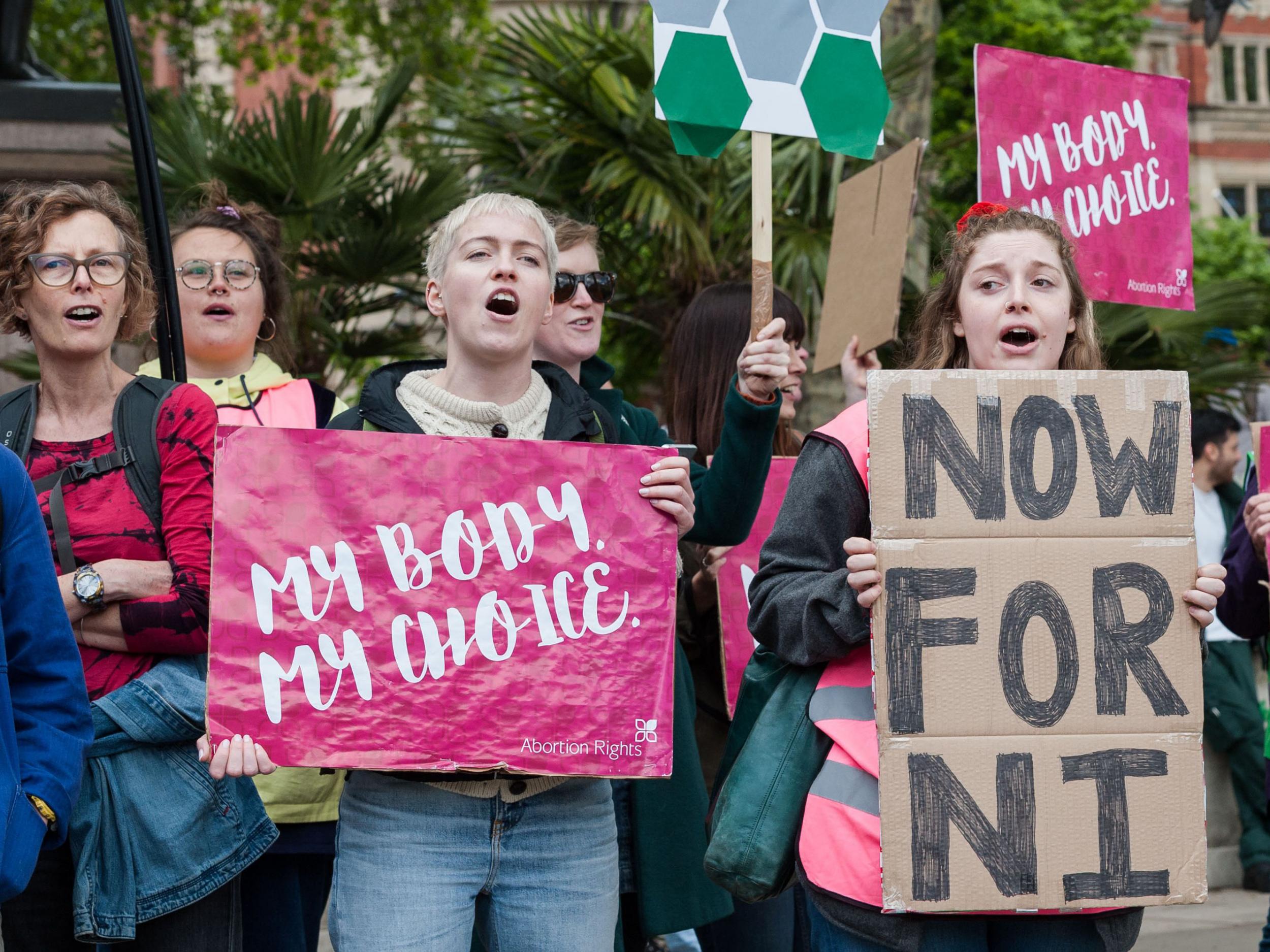I wish there had been a buffer zone outside my abortion clinic...
…then I would have been spared the anguish of people intent on judging me and my decision, writes Amelia Loulli, who welcomes new safe space protections for women


Finally, some good news for abortion rights in England and Wales. From 31 October, safe access buffer zones outside abortion clinics will at last be enforced, making it illegal for anyone to do anything that “intentionally or recklessly influences someone’s decision to use the abortion services.” Anyone found guilty of breaking this law within a 150-metre radius of the abortion service provider will face an unlimited fine.
Welcome as this news may be, the truth is, women in England and Wales have waited far too long for this kind of protection. That wait is a sign of the damaging tensions and misplaced debates over abortion laws which continue to threaten women’s rights – both here in England, where abortion is still not decriminalised – and, right now to drastic effect, in America.
Why are buffer zones so important? For decades, anti-abortion demonstrators have been free to harass and intimidate people accessing and providing vital abortion health care. They have done this to harrowing effect through various tactics, such as standing outside abortion clinics for hours on end obstructing entrances and exits; sprinkling women and staff with “holy water”; staring; praying; wearing body cameras; holding signs with graphic and distressing images; handing out leaflets which falsely claim that abortion causes breast cancer and accusing service providers and users of “murder”.
When I travelled to a BPAS clinic in the UK in 2020 to access abortion care, there were no buffer zone laws in place to protect me, other service users or staff from harassment and intimidation by anti-abortion demonstrators. I lost sleep in the run-up to my appointment worrying about how I would handle the people intent on judging me and my decision.
At one of the most vulnerable times in my life, I was left even more at risk due to the failure to protect me from anti-abortion fanaticism – a failure which will hopefully be redressed by the new laws. On the morning of my appointment I saw a woman standing silently outside the clinic, apparently praying. For me? For my pregnancy? If her prayers were to protect life, then her prayers were answered because on the day of my abortion a life was saved – mine.
Recently, I read with horror and anguish about the devastating, preventable deaths of two women seeking abortion healthcare in America following the overturning of Roe v Wade.
Amber Nicole Thurman was a 28-year-old mother of a six-year-old son; she dreamt of going to nursing school but instead died in hospital, surrounded by doctors who had the knowledge and the means to save her.Except... that Georgia’s draconian “pro-life” abortion ban meant the care Thurman so badly needed was delayed for 20 hours in order to protect healthcare professionals from being criminally implicated and potentially jailed. Georgia’s abortion ban effectively killed Thurman within a month of its enforcement.
Three months later, 41-year-old Candi Miller, a mother of three who lived with lupus and diabetes, died from medication abortion complications. Her family said she didn’t visit a doctor “due to the current legislation on pregnancies and abortions.”
It is my strong opinion that Georgia is directly responsible for the deaths of these two women. The state’s new abortion laws fail to account for chronic maternal medical conditions when allowing exceptions for life-threatening emergencies.
And if you think these two things – the existence of buffer zones in the UK and the US’s ever more murderously restrictive abortion bans – aren’t related, then I’m afraid you’re wrong. What we are talking about in both instances is the right of women to access healthcare safely, legally and without risk of physical or psychological danger or distress. We are talking about something which should never be a question in the first place – the right to life and freedom of choice for adult women.
The simple fact is that anyone accessing abortion services should be free to do so without fear or risk of harassment and obstruction by anti-abortion fanatics.
The mental and emotional harm that having to endure such intimidating behaviours – or even the potential for them – causes is unacceptable. Imagine taking the steps necessary to access a medical procedure, then having to witness strangers holding a vigil with rosary beads for you outside the clinic where your procedure will take place; or leaving a clinic only to be called a “murderer” by somebody who knows nothing about you, your life, your circumstances or your choices. Imagine being raped, becoming pregnant, then being abused further on the steps of a medical facility by total strangers.
I’m glad England and Wales have followed the footsteps of Northern Ireland by offering women protection zones at last, but I am angry that it took so long –and I won’t be satisfied until abortion is decriminalised here, as it is in Northern Ireland.
I’m sad for myself and all the women who had to endure unacceptable, shameful demonstrations at a time when what we needed most was compassion, support and validation.
And mostly, I’m devastated for Thurman, Miller and their families – especially their children, who must now grow up without a mother.
Their terrible stories are only the beginning. There will certainly be more preventable deaths of women in America under these outdated and inhumane abortion bans, all because of right-wing fanatics who continue to insist on making women pay the ultimate price.
Such dangerous, religious-turned-political ideology has no place in a modern world where healthcare and protecting human rights for all should be a priority.
Amelia debut collection SLIP, the only collection dedicated to exploring the abortion experience, is published by Jonathan Cape






Join our commenting forum
Join thought-provoking conversations, follow other Independent readers and see their replies
Comments